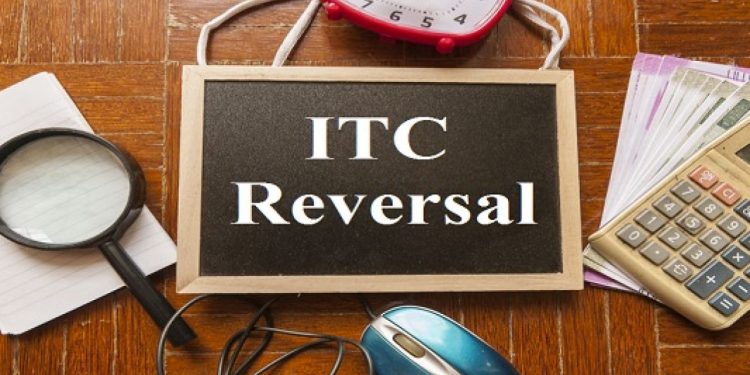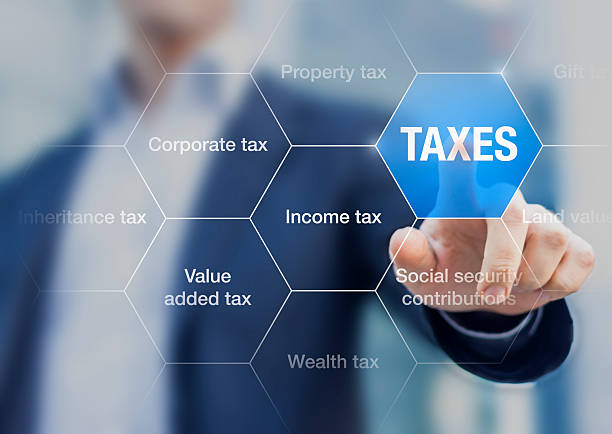Below is the compilation of Rulings by AAR Madhya Pradesh. The Compilation provides the subject of the Ruling along with the Date of Ruling. Link to Download has also been given alongwith the Ruling.
Case: Atriwal Amusement Park dated: 09.06.2020
Query: a) Whether we are eligible to take credit on Input Tax paid on Purchase of Water Slides? Water Slider are made up of Strong PVC.
b)Water Slider are installed on Steel and Civil Structure. Credit of Tax paid on Input goods and services used in construction of this support structure will be available or not?
c) Input Tax will be available or not on Goods and services used for area development and preparation of land on which water slides are erected.
d) Whether applicant will be eligible to take credit of Input Goods and Services used for construction of Swimming Pool/Wave Pool as water slides directly run into pools?
To Download Please Click “HERE”
Case: Agarwal Coal Corporation Pvt. Ltd. dated: 08.06.2020
Query: a) Whether the Applicant is liable to discharge tax liability @ 18% on coal handling and distribution charges wherever supply of such services is intended to be made expressly to a customer or will the Applicant be entitled to charge GST at the rate of 5% as applicable on supply of coal ?
b) Will the applicant be entitled to utilize the input tax credit availed for discharging liability towards supply of coal and supply of coal handling and distribution charges?
To Download Please Click “HERE”
Case: Jabalpur Hotels Private Limited dated: 08.06.2020
Query: Input credit on Purchase of Lift would be available to Hotel as it has been used in the course or for the furtherance of business.Input credit on Purchase of Lift would be available to Hotel as it has been used in the course or for the furtherance of business.
To Download Please Click “HERE”
Case: VE Commercial Vehicles Ltd dated: 02.06.2020
Query: The chassis is originally manufactured by one of the unit of the applicant registered separately as distinct person under GST Act and sold to provider of chassis receiving the chassis for fabrication of body?
The chassis is originally manufactured by some other OEM and sold to provider of chassis before receiving the chassis for fabrication of body?
To Download Please Click “HERE”
Case: M/s Alisha Foods dated: 28.11.2019
Query: What is the correct classification of Fried Fryums of differnt shapes, sizes and varieties which are ready to eat and What is the HSN Code and GST rate appicable on such goods manufactured.
To Download Please Click “HERE”
Case: M/s Anik Milk Products Private Limited dated: 18.10.2019
Query: Whether flavoured milk is taxable at the rate 5% under Schedule IV of the GST Act.
To Download Please Click “HERE”
Case: M/s Bhavika bhatia dated: 25.09.2019
Query:
(a) Applicability of serial no. 15(b)(HSN/SAC Code 9964) of exemption Notification No. 12/2017 (Rate) dated 28-06-2017 as amended, for said activity?
(b) If taxable, its rate of GST?
To Download Please Click “HERE”
Case: M/s Force Motors Limited dated: 25.09.2019
Query: Whether to classify Utiltiy Van under chapter Heading 8703 or Chapter Heading 8704.
To Download Please Click “HERE”
Case: M/s Kalyan Toll Infrastructure Ltd. dated: 25.09.2019
Query:
(a) Whether work constitutes composite contract or is it separate contract for each work under taken?
(b) What is the effective rate of tax in the given facts?
To Download Please Click “HERE”
Case: M/s World Researchers Associations dated: 25.09.2019
Query: Whether the activities performed by the Association are covered under the definition of Charitable Activities as defined under clause 2(r) of Notification No. 12/2017- Central Tax(Rate) dated 28-06-2017, thereby covering its activities under SI. No 1 of the same notification, implying Nil Rate of GST on such activities.
To Download Please Click “HERE”
Case: M/s Madhya Pradesh Power Generating Company Limited dated: 25.09.2019
Query:
(a) Whether charging GST @5% of transportation services by Goods Transport Agency (GST) by road under RCM and 18% on coal beneficiation and loading charges (as stated in point no. 9 of Staement of Facts) is in compliance with the provisions of the GST Law?
(b) If the answer to Q-1 is negative, then waht should be the applicable GST rate on these services and who is liable to pay tax to the government?
To Download Please Click “HERE”
Case: Emrald Heights Interneational School dated: 20.08.2019
Query: Will the consideration received by the school form the praticipant school (s) for participation of their students and staff in the conference would be exempted under No. 66 or entry No. 1 or entry No. 80 or any other entry of the Notification No. 12/2017- Central Tax (Rate) or will be chargeable to GST under CGST Act, 2017 & MP GST Act, 2017 or IGST Act, 2017 ?
If not exempted then what would be the appropariate category of the service and the appropriate Tax Rate?
Wthat would be the Place of Supply for such services?
Whether exemption provided to service providers of catering, security. cleaning, house-keeping, transportation etc. to an educational institution upto higher secondary be available to the service providers of the Applicant for services related to such conference.
Whether ITC would be elighible of all the input services availed for the purpose of the above conference?
To Download Please Click “HERE”
Case: Madhya Pradesh Power Generating Company Limited dated: 26.07.2019
Query: Rate of GST on contract for construction of building and structure for colony at village Siveria at 2×660 MW Shree Singaji Thermal Power Project Stage-II Khandwa. As per Notification No. 11/2017 as amended by Notification No. 24/2017 further amended vide Notification No. 31/2017.
Rate of GSt on construction contract of residential quarters at various power houses of MPPGCL as per Notification No. 11/2017 as amended by Notification No. 24/2017 further amended vide Notification No. 31/2017.
To Download Please Click “HERE”
Case: Ravi Masand dated: 24.07.2019
Query: Applicant believes that the product “Agriculture Knapsack Spryer” is classified under HSN 8424 and applicable tax rate is 12%. Details as per Annexure.
Relevant extract of Notification No. 1/2017 dated 28-6-17 as amended vide Notification No. 6/2018-Integrated Tax (Rate) dt. 05-01-2018 is enclosed
What shall be GST rate on such product?
To Download Please Click “HERE”
Case: Directorate of Skil Development Global Skil Development dated: 18.07.2019
Query: The applicant desired to Know, whether the services received by it form a provider of service located in a non taxable territory would attract the provision of sec 5(3) read along with Notification No 10/2017 IT(R). In other words, whether applicant is liable to pay tax under reverse charge mechanism on the transaction mentioned above?
To Download Please Click “HERE”
Case: NMDC Limited dated: 18.07.2019
Query: Whether royalty paid in respect of Mining Lease can be classified under “Licensing services for the right to use minerals including its exploration and evaluation falling under the heading 9973 attracting GST at the same rate of tax as applicable on supply of like goods involving transfer of title in goods”? Determination of the liability to pay tax on contribution made to District Mineral Foundation (DMF) and National Mineral Exploration trust (NMET) as per MMDR Act, 1957.
To Download Please Click “HERE”
Case: Sanghi Brothers (Indore) Prv. Ltd. dated: 03.05.2019
Query: Whether building of body after utilizing and consuming owned materials and providing labour and further amounting the same on chassis of the principal would amount to supply of Services
To Download Please Click “HERE”
Case: E-DP Marketing Prv. Ltd. dated: 02.05.2019
Query: Whether the applicant/importer is again required to pay IGST on the component of ocean freight under RCM mechanism on deemed amount which will amount to double taxation of IGST on the deemed component of ocean freight of the imported goods?
To Download Please Click “HERE”
Case: Network For Information & Computer dated: 10.04.2019
Query: Sr. No. 72 of Not. No. 12/2017 Central Tax(Rate), dated 28-06-17 issued by the Central Government under CGST Act, 2017 and exemption provided under Sr. No. 72 of Not. No. FA-3-42/2017-1-V(53) dated 30-06-2017 issued by the Madhya Pradesh Government under M.P. Goods & Services Act, 2017 is applicable for the applicant?
To Download Please Click “HERE”
Case: Rohan Coach Builders dated: 10.04.2019
Query: The applicant as whether the activity of building and mounting of the body by the applicant on the chassis provided by the Principle will result in supply of goods under HSN 8707 or supply of services under HSN 9988 taxable @ 18% irrespective of end use by the principle who shall effect the sale of Bus.
To Download Please Click “HERE”
Case: Narsingh Transport dated: 18.02.2018
Query: The applicant desire the advance ruling on the subject that whether the GST paid on these cars provided to their different customers on lease rent will be available to it as INPUT TAX CREDIT(ITC) in terms of Section 17(5) of Central Goods and Service Tax Act, 2017
To Download Please Click “HERE”
Case: J C Genetic India Private Limited dated: 21.01.2018
Query: Whether exemption provided under Sr No. 74 of Notification No. 12/2017-Central Tax (Rate) dated 28.06.2017 is applicable to the applicant?
To Download Please Click “HERE”
Case: Madhya Pradesh Pashchim Kshetra Vidyut Vitaran Company Limited dated: 22.11.2018
Query: Applicability of provisions of S.No. 3&3A of Table of Notification No. 12/2017 dtd. 28-06-2017 as amended from time to time on services supplied to the company (As mentioned in Sr. No. 14 of the Application)
To Download Please Click “HERE”
Case: Madhya Pradesh Poorv Kshetra Vidyut Vitaran Company Limited dated: 22.11.2018
Query: Taxability on energy charges and distribution charges and Non-Tariff Charges and others.
To Download Please Click “HERE”
Case: Vaau Energy Solutions Pvt. Limited dated: 31.10.2018
Query: The application for advance ruling filed by the applicant is dismissed as withdrawn at the behest of the applicant.
To Download Please Click “HERE”
Case: M/s Prem Ghan Products dated: 23.10.2018
Query: Rate of tax on food Products
To Download Please Click “HERE”
Case: Madhya Pradesh Madhya Kshetra Vidyut Vitaran Company Limited dated: 18.10.2018
Query: The applicant wishes to know whether clause(vi)(a) of Sr. No. 3 of table of Notification No. 11/2017-Central Tax(Rate) dated the 28th june, 2017 is applicable on the works contract services received by it. And determination of liability to pay tax.
To Download Please Click “HERE”
Case: M/s Shreeji Infrastructure India P. Ltd. dated: 18.10.2018
Query: Applicant of Notification no. 11/2017 Cebtrak Tax (rate) dated 28-06-2017
To Download Please Click “HERE”
Case: Madhya Pradesh Poorv Kshetra Vidyut Vitaran Company Limited dated: 18.09.2.018
Query: Applicability of notification & determination of liability to pay tax?
To Download Please Click “HERE”
Case: Italian Edibles Private Limited dated: 18.09.2018
Query: Classification or Tariff Heading Product of applicant?
To Download Please Click “HERE”
Case: Jabalpur Entertainment Complexes Pvt. Ltd. Khasara No. 36/4 Lower Ground Floor, Narmada Road, Jabalpur Madhya Pradesh, 482008 dated: 27.08.2018
Query: Multiplex, Mall, Food Court, SAM Retail,, Rate of tax on Snack bar & Food Court Eligibalty, ITC
To Download Please Click “HERE”
Case: Madhya Pradesh Paschim Kshetra Vidyut Vitran co.Ltd. O/o ChiF Financial Officer,Mppkvvcl,GPH Compound, Pologround,Indore (M.P.) 452003 dated: 27.08.2018
Query: Power distribution, Whether clause (vi)(a) of Sr.No. 3 of table of Notification No 11/2017-Central Tax(Rate) dated the 28th June, 2017 is applicable on the works contract undertaken by it. And determination of liability to pay Tax.
To Download Please Click “HERE”
Case: Indian Institute of Management Indore,Prabandh Shikhar, Rau Pithampur Road, Indore (M.P.) 453556 dated: 10.08.2018
Query: Education Institute, Whether the course Executive Post Graduate Programme in Managment. After enactment of IIM Act 2017 notified with from 31-01-2018 is exempted from GST
To Download Please Click “HERE”
Case: Ashok Kumar Patel dated: 25.07.2018
Query: Applicability of the notification number F-A-3-08-2018-1-V (43), DATED 24-4-2018 issued under MPGST Act/Rules on “unmanufactured tobacco” nuder CTH 2401.
To Download Please Click “HERE”
Case: Spentex Industries Ltd. dated: 19.07.2018
Query: Specify the complete procedure for S.No.1 & explanation 1 of the Notification No.48/2017-Central Tax dated 18.10.2017 for supplies by DTA to Advance Authorisation Holder?
Specify the applicability of foreign Trade Policy 2015-2020 Mid Term review and specify procedure for procuring goods from DTA against Advance Authorization.
To Download Please Click “HERE”
Case: KPH Dream Cricket Pvt Ltd. dated: 04.07.2018
Query: Whether free tickets given as ‘complimentary tickets’ falls within the definition of supply under the CGST ACT, and whether applicant is liable to pay GST on such free tickets?
Whether applicant is eligible to claim ITC in r/o complimentary tickets?
To Download Please Click “HERE”
Case: Arpijay Fabricators Pvt. Ltd. dated: 30.06.2018
Query: Classify supply of goods or supply of services;
Classify appropriate rate of supply of goods or supply of services.
To Download Please Click “HERE”
Case: Swati Dubey dated: 22.06.2018
Query: Classify the supply of services of constructions;
Clarify the applicable rate of CGST/SGST on the above services.
To Download Please Click “HERE”
Case: Egis India Consulting Engineers Pvt. Ltd. dated: 22.06.2018
Query: Applicability of a notification issued under the provisions of the Act; i.e. Eligibility of exemption of GST in r/o Consulting Services provided to assist the State/Urban Local Bodies, in implementation of Atal Mission for Rejuvenation and Urban Transformation (AMRUT) and Pradhan Mantri Awas Yojna (PMAY) in light of Notification No.12/2017-CT(Rate) dated 28.06.2017 as amended by Notification No.2/2018-CT(Rate) dated 25.01.2018 Notification No.FA-3-42/201711/V(53) dated 30.06.2017
To Download Please Click “HERE”
Case: Sasan Power Limited dated: 06.06.2018
Query: Whether applicant is entitled to carry forward the accumulated CENVAT Credit u/sec.140 of the GST Act?
Whether the accumulated CENVAT Credit so carry forward, not being credit availed under the GST regime is required to be adjusted / restricted in the manner prescribed under Rule 42 and 43 of the CGST Rules?










